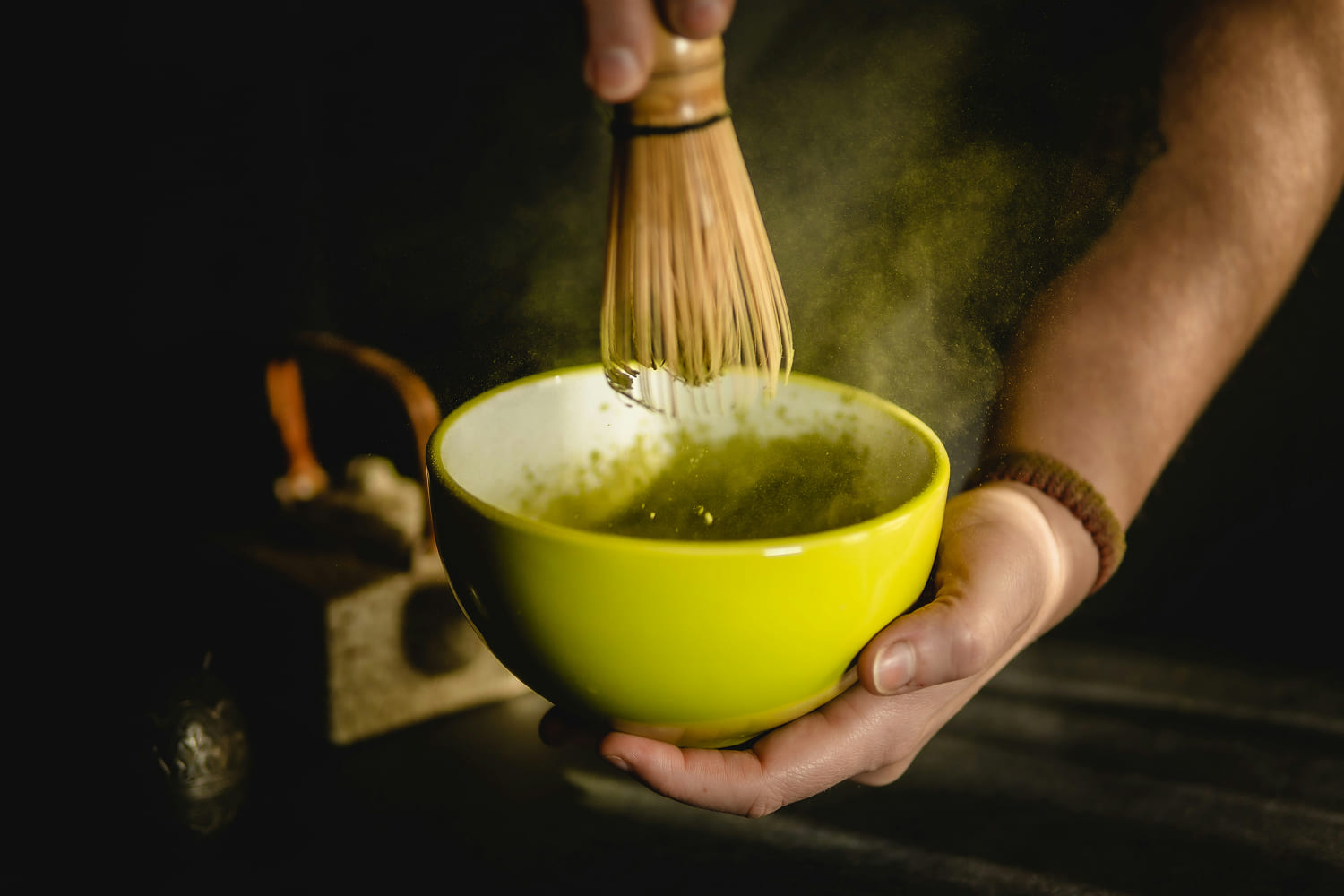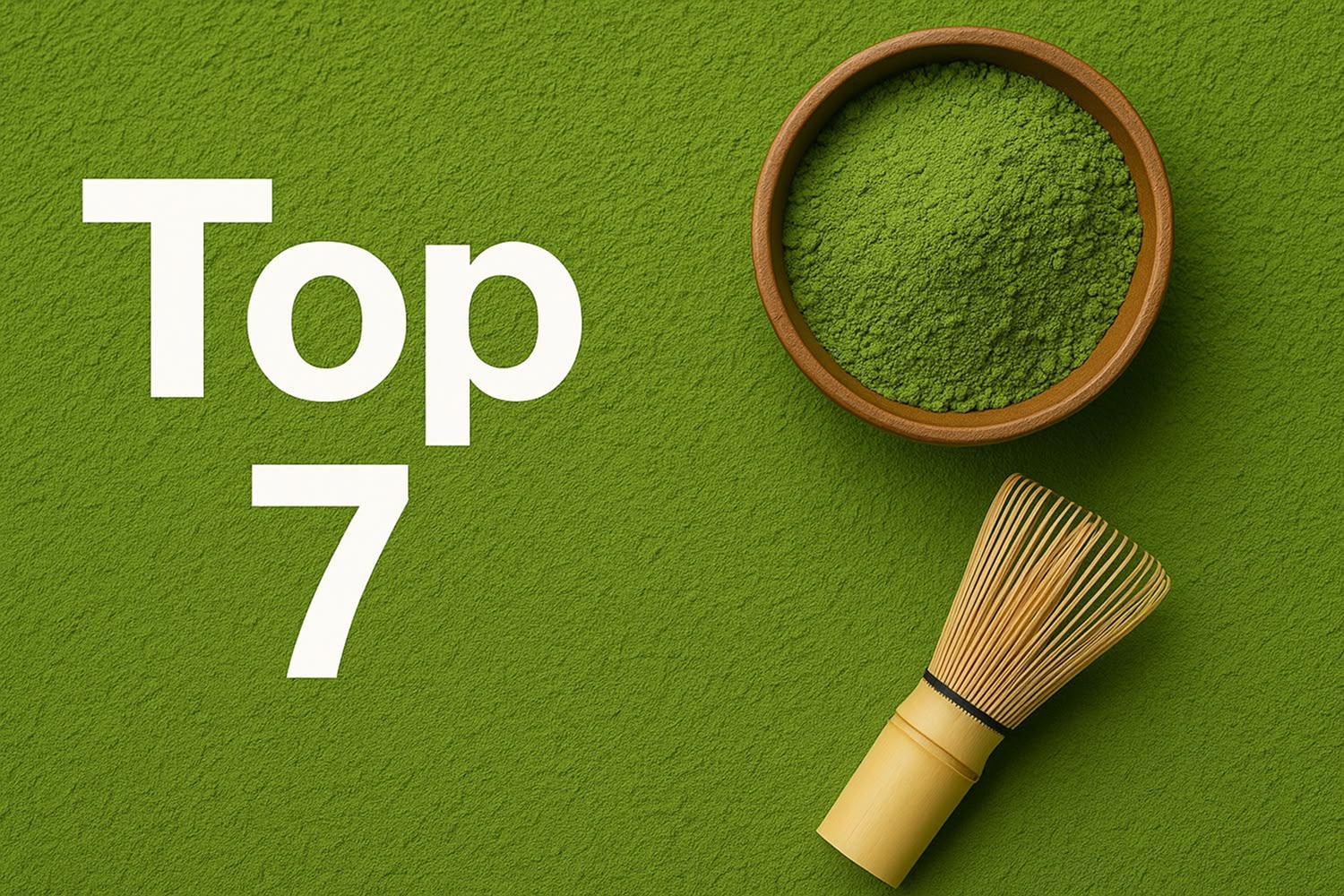Peut-on boire du thé matcha pendant la grossesse ?


Matcha Tea During Pregnancy: Is It a Good Idea or Should You Be Cautious?
When you're pregnant, every choice matters. And when it comes to food, questions come flooding in:
Can I eat this? Is it safe for the baby? Is it risky? Matcha tea is no exception.
A flagship wellness drink, it sparks curiosity — but also raises doubts.
So, is drinking matcha during pregnancy a good idea, or should it be avoided?
What are the potential benefits? Are there any risks? And if so, how much can you safely consume?
In this article, we’ll help you get clear, honest answers, based on reliable data — so you can make an informed decision.
Matcha Tea During Pregnancy: What Exactly Are We Talking About?
First, let’s recall what matcha is.
It’s a Japanese green tea ground into an ultra-fine powder, made from tencha leaves grown in the shade and stone-milled.
Unlike regular tea, matcha is not just steeped — it is entirely consumed, making it richer in caffeine, antioxidants, L-theanine, and chlorophyll.
💡 For a pregnant woman, this changes everything: the amount of nutrients — and caffeine — is much more concentrated than in a simple green tea infusion.
What Are the Potential Benefits of Matcha During Pregnancy? 🌿
Matcha isn’t necessarily forbidden during pregnancy. In moderate quantities and if carefully chosen, it may even offer some benefits:
1. Source of antioxidants (catechins)
Matcha contains powerful antioxidants, especially EGCG, which help protect cells from oxidative stress — a useful support for the immune system during this sensitive time.
2. L-theanine: a calming effect
This amino acid, unique to tea, promotes mental relaxation without drowsiness. A helpful ally in cases of stress or mild anxiety during pregnancy.
3. Less stimulating than coffee
Although matcha contains caffeine, its effect is more gradual and gentle, thanks to L-theanine. It can be a more stable alternative to coffee when consumed in small amounts.
Under What Conditions Can You Drink Matcha While Pregnant? 👶
Official recommendations:
Most health authorities (WHO, EFSA, ANSES) recommend limiting caffeine intake to 200 mg/day during pregnancy.
👉 Matcha contains about 30–35 mg of caffeine per gram.
A typical serving (1 g in 70 ml of water) therefore provides:
- Around 35 mg of caffeine
- Which is less than a regular cup of coffee (~80 to 100 mg)
So: Yes, a small cup of matcha is acceptable — as long as you’re not consuming other sources of caffeine (coffee, cola, chocolate…) during the day.
🎯 Recommended dosage:
Maximum 1 g of matcha per day, brewed at the correct temperature (70–80°C), preferably with no added sugar.
Are There Risks or Contraindications? ⚠️
Yes — like any active substance, matcha should be consumed with care during pregnancy. Here’s what to consider:
1. Caffeine and fetal development
Excessive caffeine intake has been linked to an increased risk of intrauterine growth restriction or miscarriage, according to several studies. This is why dosage must be strictly controlled.
2. EGCG and folic acid
EGCG may interfere with the absorption of folic acid, a vital nutrient for the proper development of the baby’s neural tube.
It’s important not to consume matcha at the same time as your folic acid supplement.
3. Heavy metals and pesticides
Some non-organic matcha powders may contain undesirable residues. For pregnant women, this presents a real risk.
Always choose organic, lab-tested matcha.
How to Choose a Good Matcha During Pregnancy?
Here are the essential criteria for a safe, high-quality matcha tea during pregnancy:
✅ Certified organic
✅ Japanese origin (Uji, Nishio, Kagoshima)
✅ Premium or ceremonial grade (avoid culinary matcha)
✅ No additives or artificial flavors
✅ Caffeine content indicated, if possible
✅ Lab analysis available (pesticides, heavy metals)
💡 To help you choose with peace of mind, check out our comparison of the best matchas for 2025, adapted to every profile.
FAQ – Matcha Tea During Pregnancy: Your Most Frequent Questions
Can I drink matcha every day while pregnant?
Yes — 1 cup per day max (about 1 g of matcha), factoring in caffeine from other foods and drinks.
Is matcha safer than coffee during pregnancy?
It contains less caffeine per serving, and its effects are gentler. If well dosed, it can be a good alternative.
Does matcha help with pregnancy fatigue?
It may offer a mild boost — but doesn’t replace rest or a proper diet. Consume in moderation.
Should I choose a specific brand?
Yes — go for organic, traceable, and transparent brands, with Japanese origin and available lab tests.
Can it be combined with a folic acid supplement?
Yes — but not at the same time of day. Take your supplement at least 2 hours before or after drinking matcha to avoid interactions.
In Summary: Matcha and Pregnancy – Yes, but in Moderation 👌
Matcha tea during pregnancy isn’t forbidden — but it’s not trivial either.
In small amounts, if carefully selected and properly prepared, it can be part of a gentle, enjoyable wellness routine during pregnancy.
✅ Key takeaways:
- Max 1 g per day
- No other major caffeine sources alongside
- Never a substitute for good hydration or proper medical care
👉 Want to try an organic, mild matcha suitable for your mom-to-be routine?
Check out our exclusive discount codes for the best deals!

Japanese Green Tea Co
Prix à partir de :
14,00$
Use code LMC to enjoy 10% off premium, authentic Japanese matcha. Discover the perfect balance of quality and tradition with every cup.

Découvrez le top 7 des meilleurs Matcha en poudre
Notre sélection exclusive des Shilajits himalayens les plus purs et efficaces, testés et approuvés par nos experts.
